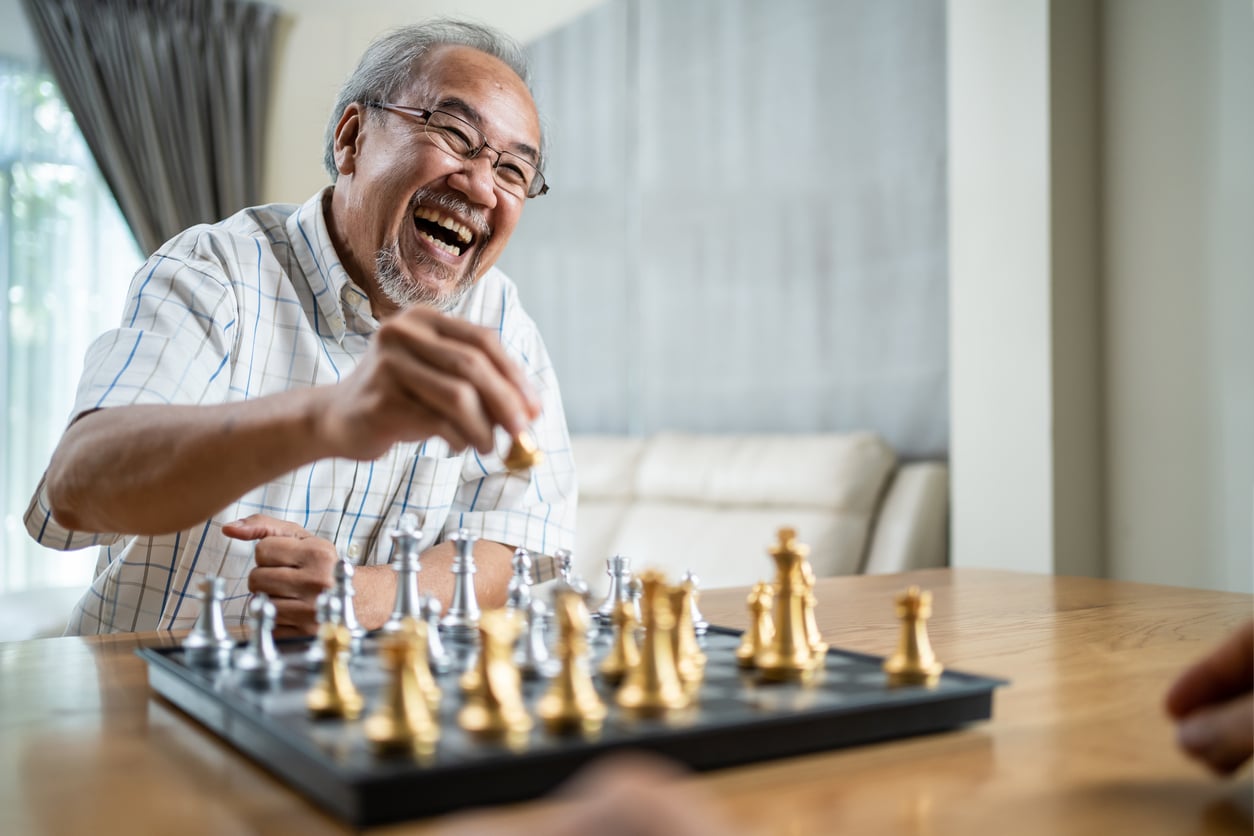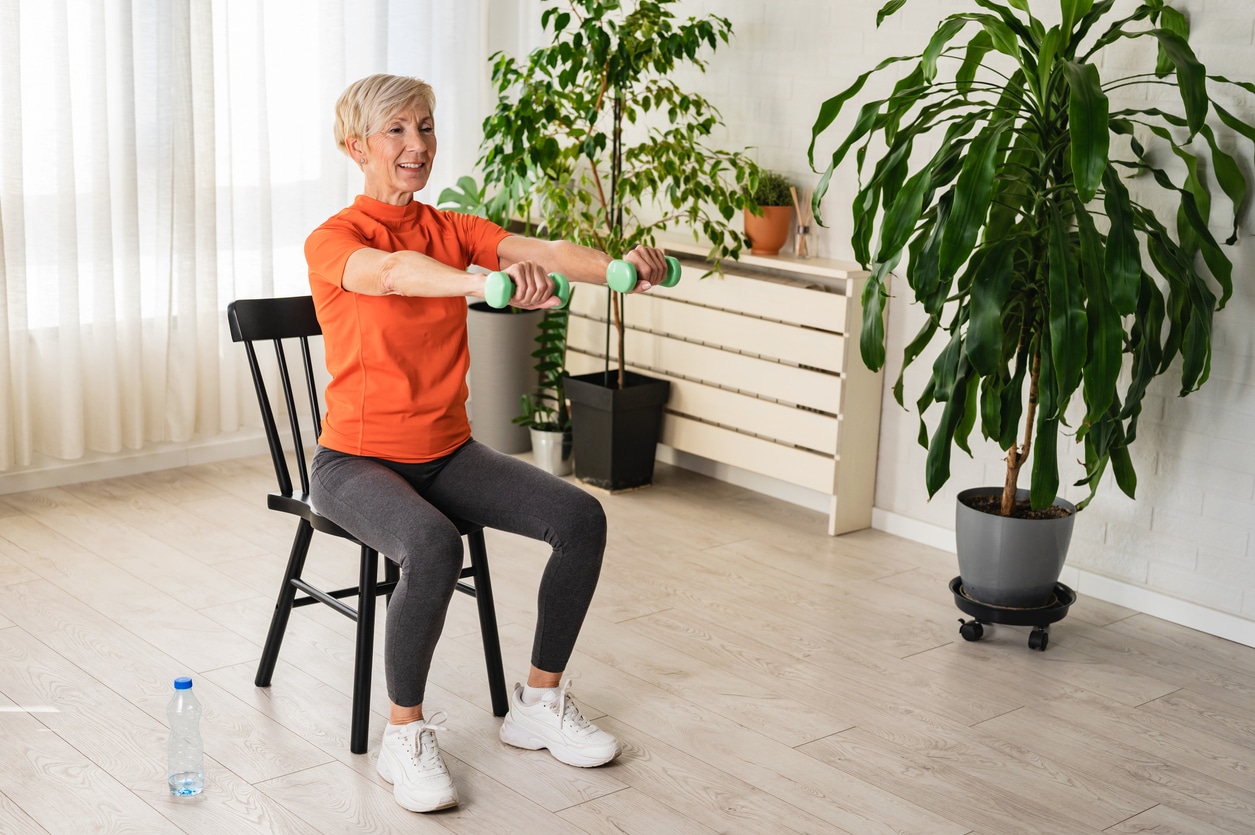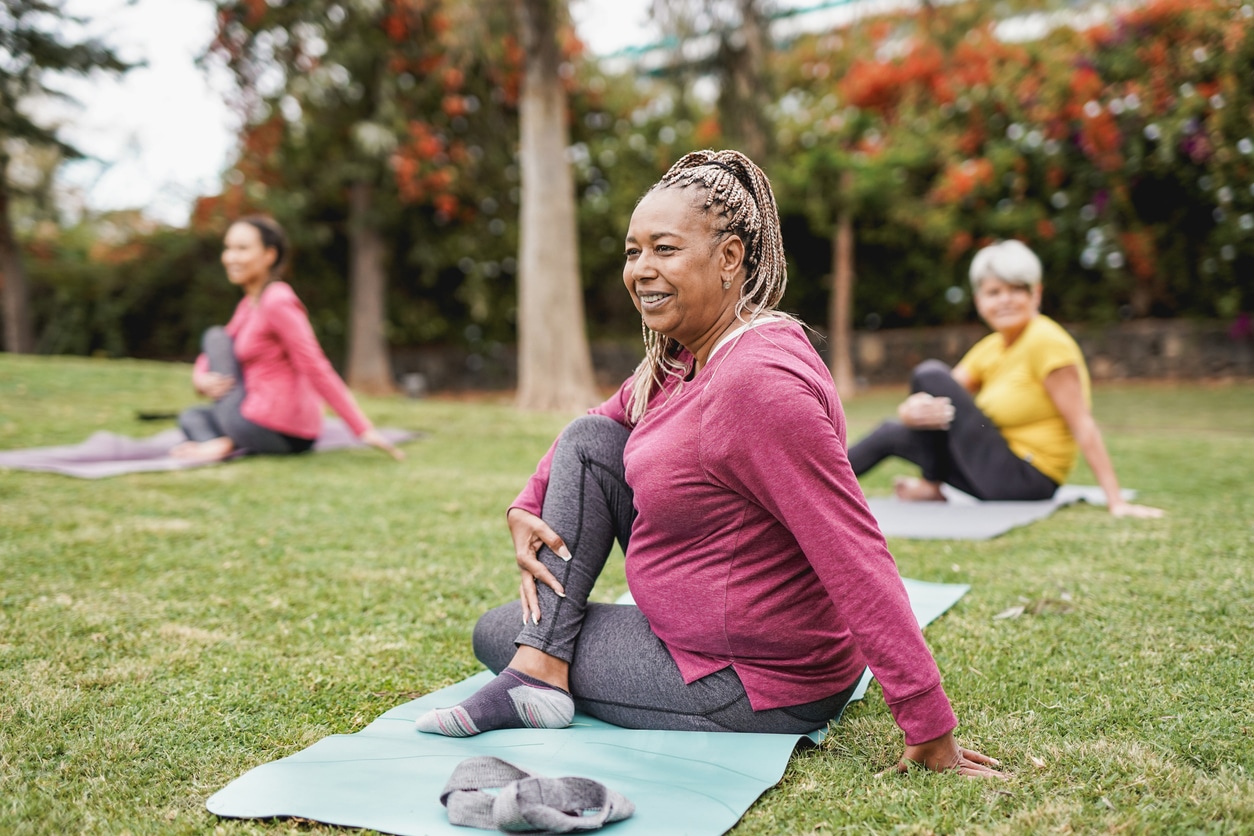We know keeping our bodies active is important to aging well. But did you know it’s just as important to exercise our brains? Frequently engaging in cognitive activities – playing memory games and doing cognitive exercises encourages new growth in our brains[i] and has been shown to slower late-life cognitive decline.[ii]
What exercises for seniors help memory?
We’ve identified four memory exercises that can help reduce forgetfulness.
1. Word games for seniors
Word games – like Crosswords, Wordle, Sudoku, scrambles, and brain teasers — are great brain workouts because they test our problem-solving skills, pattern-recognition abilities, and our memories. A recent study indicates that regularly working crosswords may help slow the progress of cognitive impairment in some people.[iii] Pro Tip: Looking for a digital option? There are many crosswords and puzzles for seniors online and in the app stores.
2. Math games for older adults
Math may not be your idea of a game, but playing with numbers exercises our brains. Calculating and processing numbers work the parietal lobe area and recalling “numerical knowledge” and working memory stretches the frontal lobe. Try this next time you’re shopping: keep a running tab in your head of the total cost of all your items, factor the sales tax and see how close you are at checkout. Your accuracy is less important than the process, so don’t feel bad if you’re off.
3. Reading, memory and age
Since we often read for enjoyment or in pursuit of knowledge, we don’t think of it as a memory-related activity. But it activates multiple parts of our brain and contributes significantly to its health. Reading involves decoding words, finding meaning, following logic, and connecting to life experiences and other information sources. It also reduces stress, which is good for our bodies and our minds. See more ways reading benefits your health.
4. Lifelong learning and brain health
Learning – whether it’s a new language or skill, or new ideas and concepts – increases cognitive fitness by stimulating mental function and promoting social interaction.[iv] Our brain “circuitry” grows and reorganizes as we acquire new knowledge, making it a crucial factor in memory. And when we learn with others (in-person or virtually), we combat loneliness and isolation. These two emotions are associated with faster cognitive decline and lower overall cognitive ability.
Engaging in any of these activities benefits your brain. Get started today!
Important: These games and exercises are neither treatments nor cures for memory issues and cognitive decline. If you or a loved one experiences difficulty with remembering and forgetfulness, make an appointment with a nurse or doctor to get the support you deserve.
Don’t disregard professional medical advice, or delay seeking it, because of what you read here. This information is not intended as a substitute for professional consultation, diagnosis or treatment; it is provided “as is” without any representations or warranties, express or implied. Always consult a healthcare provider if you have specific questions about any medical matter, and seek professional attention immediately if you think you or someone in your care may be experiencing a healthcare condition or medical emergency.
[i] Flexman R. Lifelong Learning: A Key Weapon in Delaware’s Fight Against Cognitive Decline. Dela J Public Health. 2021 Sep 27;7(4):124-127. doi: 10.32481/djph.2021.09.015.
[ii] Robert S. Wilson, Patricia A. Boyle, Lei Yu, Lisa L. Barnes, Julie A. Schneider, David A. Bennett.
“Life-span cognitive activity, neuropathologic burden, and cognitive aging”Neurology Jul 2013, 81 (4) 314-321; doi: 10.1212/WNL.0b013e31829c5e8a.
[iii] D. P. Devanand, M.D.; Terry E. Goldberg, Ph.D.; Min Qian, Ph.D.; Sara N. Rushia, B.A.; Joel R. Sneed, Ph.D.; Howard F. Andrews, Ph.D.; Izael Nino, B.A.; Julia Phillips, B.A.; Sierra T. Pence, B.S.; Alexandra R. Linares, B.S.; Caroline A. Hellegers, M.A.; Andrew M. Michael, Ph.D.; Nancy A. Kerner, M.D.; Jeffrey R. Petrella, M.D., and P. Murali Doraiswamy, M.B.B.S. 2022. “Computerized Games Versus Crosswords Training in Mild Cognitive Impairment” NEJM Evidence. doi: 10.1056/EVIDoa2200121.
[iv] Flexman R. Lifelong Learning: A Key Weapon in Delaware’s Fight Against Cognitive Decline. Dela J Public Health. 2021 Sep 27;7(4):124-127. doi: 10.32481/djph.2021.09.015.




